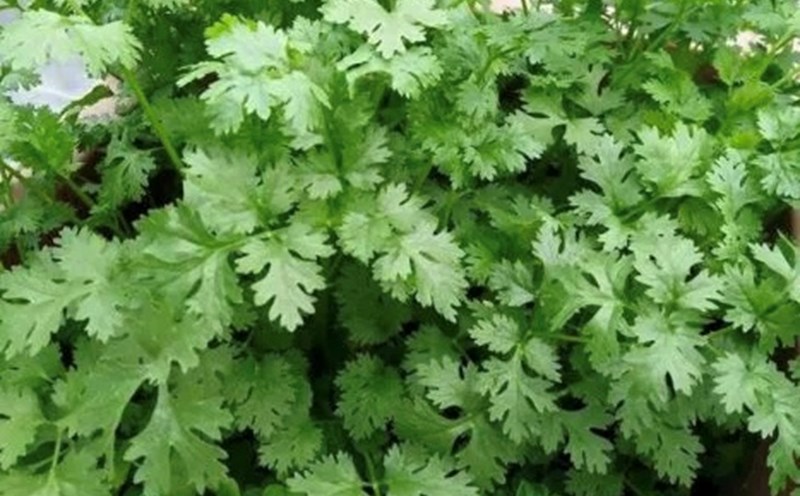Comparison of nutrients between nuts and coriander leaves
In the US, the leaves and stems of Coriandrum sativum are often called cilantro (smelly), while the dried seeds are called coriander (smelly vegetables). According to the United States Department of Agriculture (USDA), a tablespoon of coriander seeds (5g) provides about 15 kcal, 2.1g of fiber and more than 35mg of calcium. Meanwhile, 4g of coriander leaves contain less than 1 kcal but are rich in vitamin A (13.5 mcg) and vitamin K (12.4 mcg).
Scented vegetables are a rich source of minerals, especially calcium, iron and magnesium, says nutritionist Melissa Nieves, LND at Cleveland Clinic, USA.
In addition, coriander seeds are rich in linalool, a plant compound with powerful anti-inflammatory and antibacterial properties. Coriander leaves provide flavonoids, carotenoids and joyphics, which help protect cells from damage caused by free radicals.
across-the- bus characteristics and uses
Coriander seeds have a warm, slightly fragrant flavor, the smell of citrus chestnuts, often used in curry spices, sausages, and good dukkah mixture for meat marination. The seeds can be sold whole, mashed or roasted to enhance the fragrance.
In contrast, coriander leaves have a fresh smell, light tangerine taste, and are commonly used in sauces, soups, salads, and stews. However, about 3 - 21% of the population has a genetic variation of the smell that makes them smell the smell of soap-like vegetables, leading to dislike of this vegetable.
Outstanding health benefits
Coriander seeds contain linalool essential oil to inhibit the growth of Gram -negative bacteria, the cause of many hospital infections. Animal research also shows that coriander seed extract helps reduce oxidation stress in the brain and supports blood sugar regulating in Type 1 and 2 diabetes.
Coriander leaves, thanks to their vitamin C and leaflet content, help boost immunity and support detoxification of the body. A study on mice also found that leaf extract has the effect of protecting the skin from UV rays, reducing the risk of premature aging due to sunlight.
According to expert Nieves: Both nuts and coriander leaves have traditional medicine value, from aiding digestion, reducing inflammation to antibacterial. However, the evidence on humans is still limited and needs more in-depth research."
Who should be cautious when using?
Some people may be allergic to the ingredients of coriander, leading to rashes, itching or difficulty breathing. In addition, coriander seeds can interact with sedatives, diabetes medications or blood pressure drugs, reducing treatment effectiveness. People who are sensitive to light or susceptible to dermatitis should also limit their high dosage.
If you want to supplement minerals such as iron, magnesium and calcium, coriander seeds are a good choice. If you need vitamins A, K, C and antioxidants, coriander leaves will be more suitable. Using a balanced diet will bring maximum health benefits while still ensuring safety.











